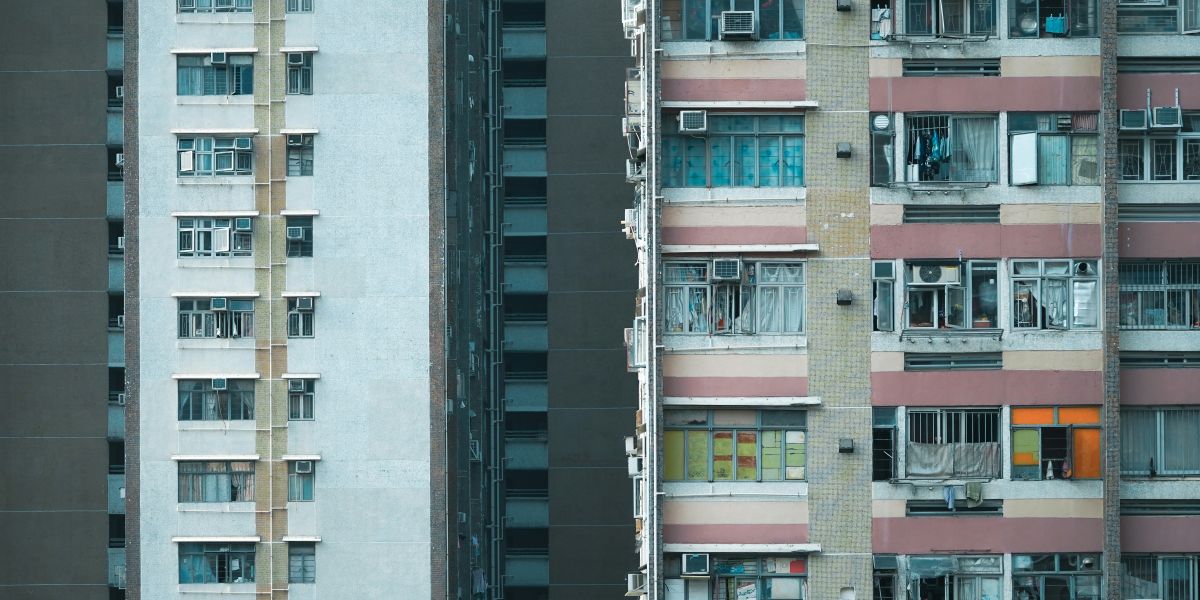By: Margot Lin
Lasley Lui’s filmmaking often begins where language becomes more limited—quiet, intuitive, and attuned to what’s left unsaid. Her films move with precision rather than volume, shaped by migration, memory, and a sensitivity to the spaces people may often overlook. Based in Los Angeles, by way of Hong Kong and New York, she has gained recognition across independent and international circuits. Her short film After Dinner (2024)—honored by the New York Odyssey Film Festival and the San Diego Asian Film Festival—has been acknowledged as an emerging voice exploring cultural displacement and personal introspection.
Coming from Hong Kong, Lui didn’t begin consciously reflecting on her hometown until she moved away. In New York, memories of Hong Kong resurfaced in ways she hadn’t anticipated—especially in the textures of Manhattan’s Chinatown. “I would see people speaking Cantonese, the way the storefronts are laid out, the smell of firecrackers—it felt like a parallel world,” she says. “It was like finding a version of Hong Kong that had been preserved across the ocean.” She adds, “Distance can offer new clarity.”
With a background in journalism, Lui brings a research-based rigor to her narratives. “When I was studying journalism, I watched a lot of documentaries and was drawn to the emotional impact of what’s real,” she says. In After Dinner, set in Chinatown, she leans into realism, allowing the everyday—crowded streets, fragmented conversations—to influence the emotional tone. The Normal Girl (2022), which centers on a young woman navigating Polycystic Ovary Syndrome (PCOS), emerged from a series of in-depth interviews Lui conducted with women living with the condition. “When they shared their stories, their choice of words stayed with me. It helped me build not just the dialogue, but the whole emotional atmosphere,” she explains.

Photo Courtesy: Lasley Lui
Editing, for Lui, is emotional architecture. She favors long takes and carefully chosen silences. “Silence can often be more powerful than dialogue,” she notes. “Those empty moments invite the audience to participate, to fill in the gaps emotionally.” In After Dinner, characters are often observed from a distance, allowing their vulnerability to play out quietly against the backdrop of the city. “I didn’t want to zoom into their faces while they were talking about breaking up—it felt too intrusive. The restraint was intentional.”
That restraint continues into The Normal Girl, though here it shifts into a more urgent emotional mode. In one scene, the protagonist sleeps as household sounds grow louder—microwave beeps, dishes clattering—cut against her uneasy expressions. The sequence builds an atmosphere of quiet panic, using domestic detail to mirror internal chaos. “I wanted that moment to feel claustrophobic, even though it’s happening in a familiar, everyday space,” Lui says.
Throughout her work, Lui returns to the theme of emotional fragility—particularly among her generation. “I’m interested in how we deal with uncertainty, how people my age carry this quiet anxiety,” she reflects. Her characters are often suspended between expectations and emotional ambiguity, navigating relationships and identity in a world that doesn’t always offer easy answers. “I want to show the emotional residue—not just what happens, but what stays.”

Photo Courtesy: Lasley Lui
Now in Los Angeles, Lui is intrigued by how the city’s rhythm is shaped by its roads. Her next project, she hints, may unfold in and around cars—not as symbols of action, but as places where time stretches and emotional landscapes form. “Being in a car here is like being in a floating room,” she says. “You’re seeing so much, but nothing stays long. That temporariness affects how I think about storytelling.” In recent work, she has also collaborated with high-performing short-form streaming platforms, shaping mini-series that have reached broader audiences and reinforced her ability to navigate both intimate and large-scale formats.
Lui’s films do not necessarily press for resolution. Instead, they create space—for ambiguity, for small feelings, for viewers to find their own meaning. “I don’t try to solve the characters,” she says. “I just want to stay with them, and let the audience feel less alone in their own unresolved moments.” That openness is part of what defines her work: emotionally precise, shaped by both journalism and film, and grounded in a rare kind of intimacy. In a shifting cinematic landscape, Lui remains a unique voice attuned to what often goes unspoken.
















